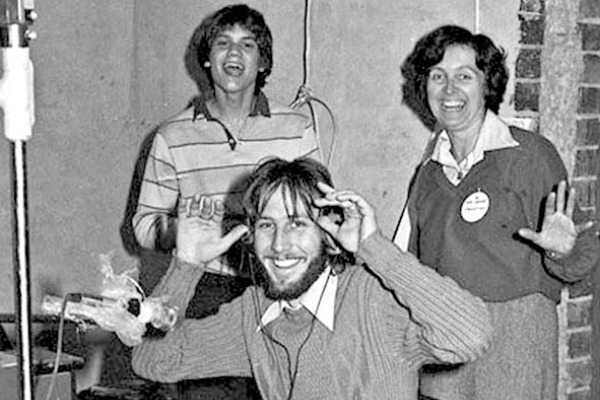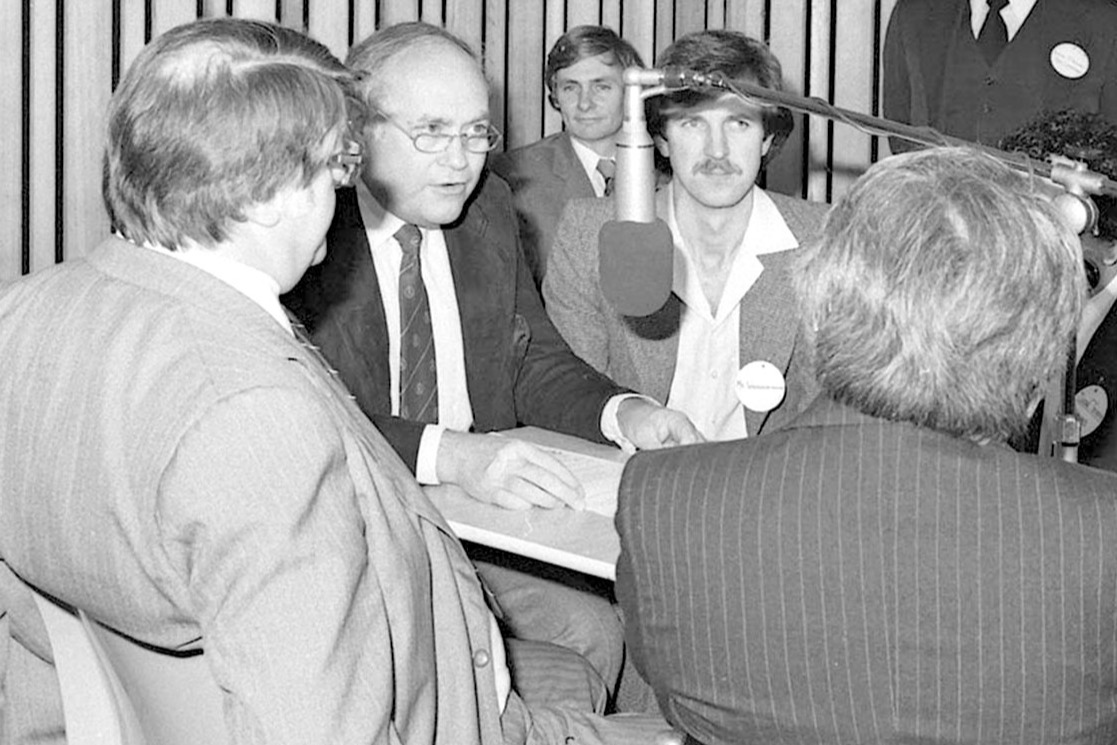1970s History 
1974
Ethnic broadcasting in South Australia started as an experiment at Adelaide University’s in-house radio station 5UV (which was also Australia’s very first community radio station).
Paul Kokke, 5EBI Life Member, said the radio program was originally set up to support migrants in their transition from the old to the new country and helped them to preserve their identity. People felt that radio was an opportunity for maintaining their culture.
The very beginning of ethnic broadcasting in Adelaide came when Paul Kokke produced a Dutch program on the commercial station 5KA.
Following this, a letter was written to Keith Conlon, at that time the Manager of 5UV, outlining suggestions and plans for a radio program for the Netherlands community and for inclusion of other European language programs. At the same time, the University of Adelaide’s department for Adult Education prepared a seminar on community broadcasting. Different ethnic groups had the opportunity to discuss the potential of ethnic broadcasting.
1975
Ethnic Broadcasters was established at the beginning of 1975, with five ethnic groups included: Italian, Dutch, Polish, Ukrainian and Greek.
On Monday the 3rd of March 1975, the very first broadcast of the Italian programme (then called Radio Paesani) marked the start of ethnic broadcasting. It was followed by the Dutch family program on Wednesday 5th March, and then the Ukrainian on Saturday 8th March. Shortly afterwards the Polish and Greek started their programs.
1977
By the end of 1977, twenty-six community groups were broadcasting, using the facilities at 5UV.
They took up almost half of 5UV’s broadcasting time! More and more groups wanted to broadcast, but they couldn’t be accommodated on air.
Early in 1977, Ethnic Broadcasters applied for a grant to operate. They were granted $45,000 by the Premier of the state, the Hon. Don Dunstan, and a further $17,000 by the Western Adelaide Regional Council for Social Development. The money was used for a studio facility and to purchase equipment to furnish a radio station. Premises were found in Cresco House, on North Terrace, Adelaide.
An article in The Advertiser in June 1977 described the station at the time as follows:
“The studio is small with an announcer’s desk, two tape recorders, a couple of chairs, no sound proofing and one wall, not up to the ceiling, next to a busy office.”
It soon became obvious that a new studio would be needed, to accommodate the increasing demand for broadcast times. Before the year was up in Cresco House, Ethnic Broadcasters was on the move – this time to 24 Parker Street, Mile End, with 28 groups involved.
1978
In 1978, Ethnic Broadcasters became incorporated; now to be known as EBI.
The young radio station was determined to make its dream of independence reality. In June 1978 they applied for a broadcast license. An FM license in the ‘S’ category was granted. The category was concerned with programs “servicing a particular interest or group of interests”.
The first step after obtaining the license was to negotiate with a television channel for the use of their main mast at Mt. Lofty as a transmitter site. There was also a plan to buy additional studio equipment in the following year.
On the 6th October 1978, 5EBI was granted the first ethnic public broadcasting license in Australia on the FM band. The Advertiser of the 4th September 1978 reported that Ethnic Broadcasters Inc. had “the initiative, energy and imagination” to make a bid for the two available FM licenses. This reflected the organisation’s increasing confidence. They would be able to meet the demands of the various communities for information and entertainment in languages other than English.
EBI had proven to be a responsible community-supported broadcaster. The experience with 5UV had shown their capabilities, which supported their application for a radio license.
EBI Chair Walter de Veer expressed how 5EBI would continue to progress and improve, owing to the radio committees being community-based. He also asserted they would supplement – instead of competing with – existing radio services. He later recalled how excited and proud everyone was that the license was granted.
To celebrate the granting of the FM radio license, the first 5EBI ball was held on November the 10th, which was a huge success with most of the ethnic groups participating.
1979
From 5EBI archives, it is evident that there was very little money and the production studio was described as being the size of a ‘telephone booth’. The state government granted $20,000 to EBI to provide a third broadcast studio with modern and comfortable fixtures.


